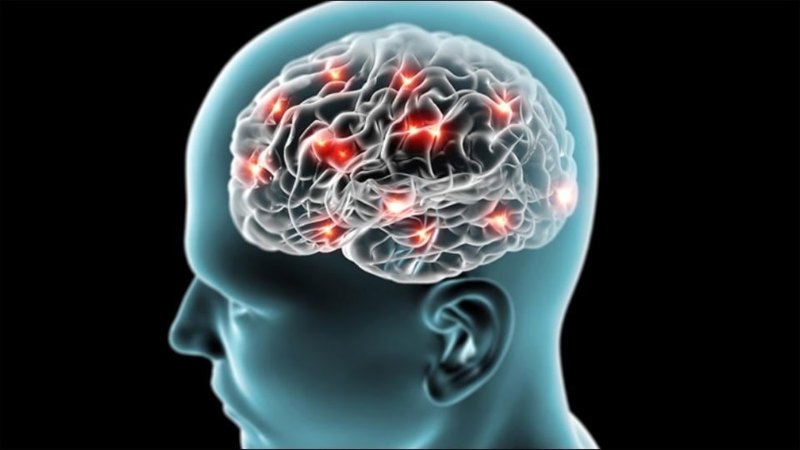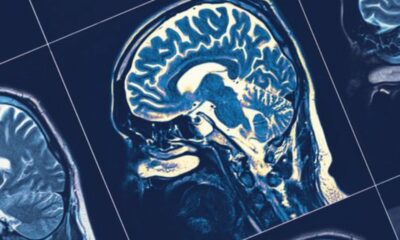Though there is still much we don’t know about the brain, a recent study has uncovered some of its hidden connections, which may one day provide relief to patients with a range of immunological conditions. Scientists at the Zuckerman Institute at Columbia University have shown that the brain of mice has an amazing capacity to recognize, magnify, and reduce inflammation. This discovery illuminates the complex interplay between the immune system and the brain and may open the door to new treatments for a variety of inflammatory and autoimmune illnesses.
“The brain is the center of our thoughts, emotions, memories and feelings,” says co-first study author Dr. Hao Jin, who started this study as a postdoctoral researcher at Columbia and is now a tenure track investigator at the National Institute of Allergy and Infectious Diseases, in a media release. “Thanks to great advances in circuit tracking and single-cell technology, we now know the brain does far more than that. It is monitoring the function of every system in the body.”
The study expands on previous research that highlights the significance of the body-brain axis and was published in the journal Nature. This essential channel facilitates information flow between the brain and other organs, allowing the brain to monitor and regulate the body’s biological functions.
The innate immune system is a protective mechanism that all animals share, thus researchers focused on it to look into any possible connections between the brain and inflammation and innate immunity. The innate immune system targets everything that shares characteristics with germs, enabling a speedier reaction to new threats than the adaptive immune system, which recalls past infections.
The group found that the caudal nucleus of the solitary tract (cNST), a particular area of the brainstem, is essential for controlling inflammatory reactions. The researchers saw an uncontrollable inflammatory response in the animals after chemically inhibiting the cNST, with levels of pro-inflammatory chemicals more than tripling and anti-inflammatory components falling by about two thirds. On the other hand, pro-inflammatory molecule levels were significantly decreased and anti-inflammatory chemical levels were approximately ten times higher when the cNST was artificially activated.
“Similar to a thermostat, this newfound brain circuit helps increase or decrease inflammatory responses to keep the body responding in a healthy manner,” explains Dr. Jin. “In retrospect, it makes sense to have a master arbiter controlling this vital response.”
The ramifications of this finding go beyond mice, since comparable mechanisms may be at work in human vagus nerve stimulation research as well. The results also support long-held theories regarding the physiological effects of the mind.
“A lot of psychosomatic effects could actually be linked to brain circuits telling your body something,” notes Dr. Jin.
Through the identification of distinct neural subpopulations in the vagus nerve and the central nervous system (cNST) accountable for identifying and regulating pro- and anti-inflammatory activity, scientists have unlocked novel pathways towards investigating the ways in which the brain observes and adjusts bodily physiology. This discovery may result in the creation of novel treatments for a variety of inflammatory and autoimmune illnesses, including Crohn’s disease, rheumatoid arthritis, multiple sclerosis, Type 1 diabetes, lupus, and inflammatory bowel disease.
A 2023 study published in the Lancet predicted that one in ten people globally suffer from autoimmune disorders. According to the Autoimmune Association, the financial cost of autoimmune illnesses may surpass $100 billion a year in the United States alone. Researchers intend to significantly improve the lives of people with immune-related illnesses by utilizing the functioning of this recently identified brain circuit.
According to senior study author Dr. Charles S. Zuker, a principal scientist at Columbia’s Zuckerman Institute and a Howard Hughes Medical Institute investigator, “this new discovery could provide an exciting therapeutic venue to control inflammation and immunity.”
The possibility of novel therapies focusing on the brain’s impact on immunity and inflammation is becoming more and more likely as studies on the body-brain axis deepen.

 Diabetology2 weeks ago
Diabetology2 weeks ago
 Diabetology2 weeks ago
Diabetology2 weeks ago
 Diabetology1 week ago
Diabetology1 week ago
 Diabetology2 days ago
Diabetology2 days ago









